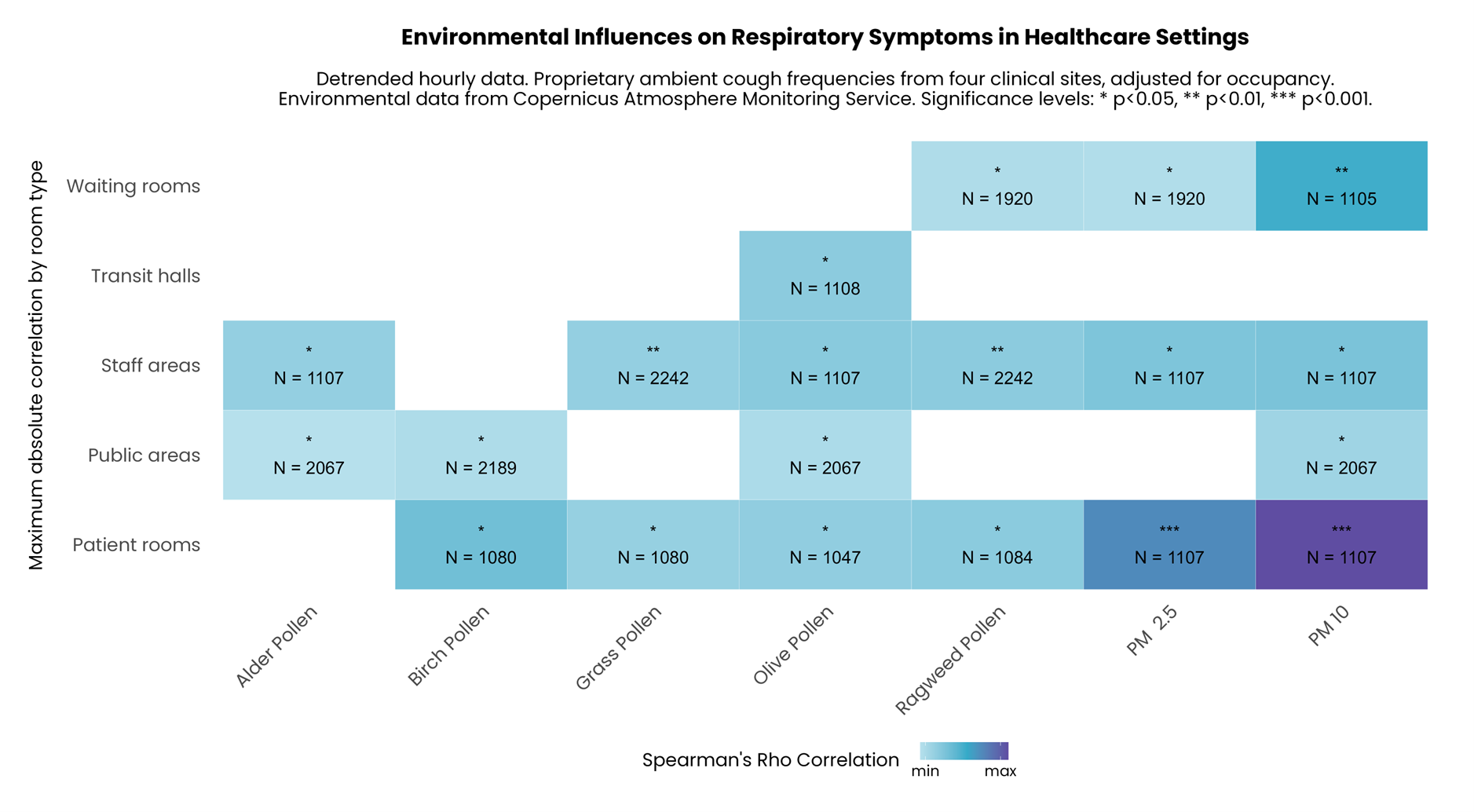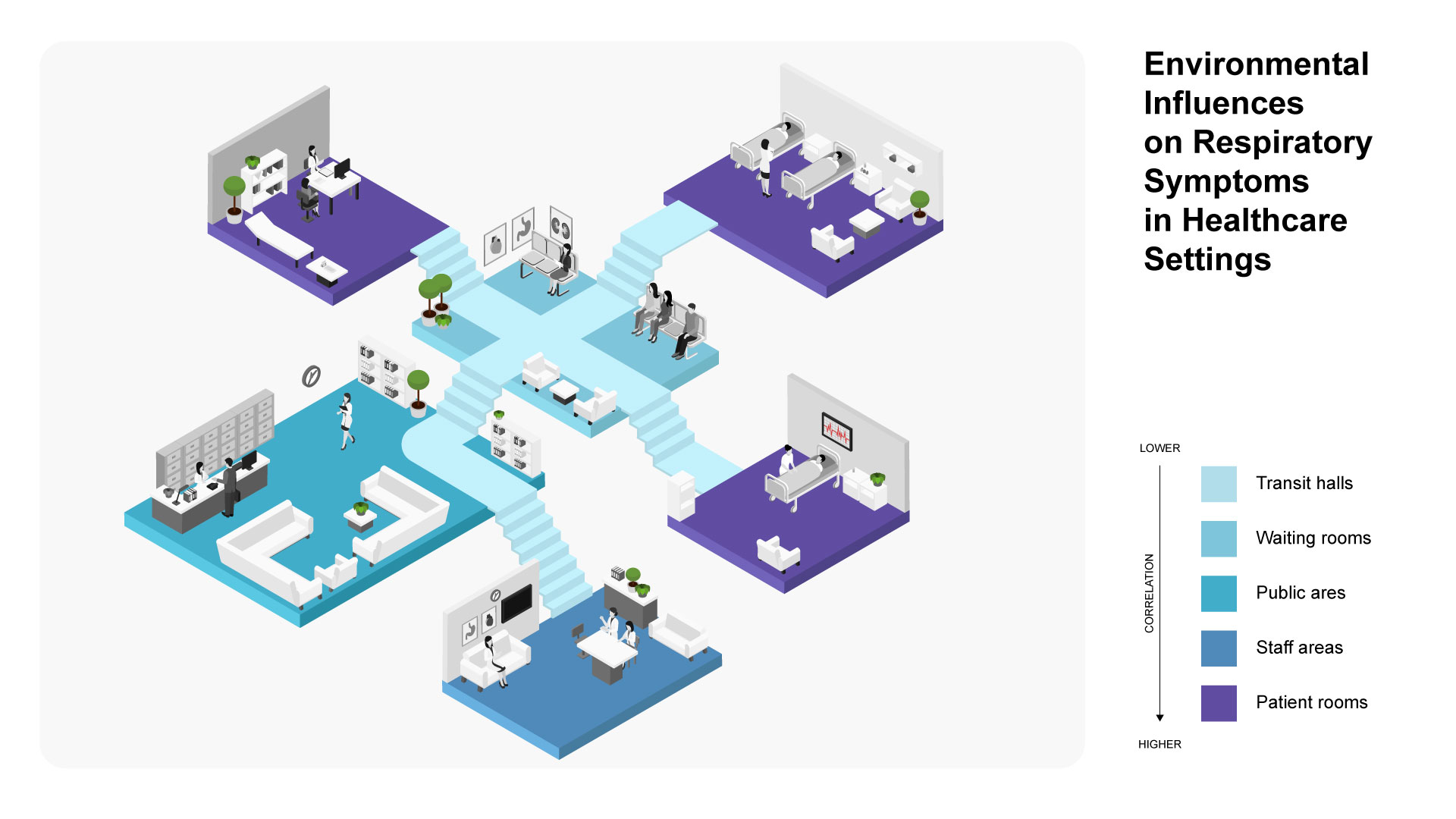Transforming respiratory health monitoring with space data

Climate change is increasingly affecting human health, with respiratory conditions being particularly vulnerable to environmental shifts. Air pollution, pollen levels, humidity, and temperature fluctuations can all trigger or worsen respiratory diseases. As these challenges grow, innovative approaches are emerging to address them effectively.
EUSPA is at the forefront of enabling companies across industries to harness Copernicus satellite data, connecting space assets with practical user needs. One such collaboration is with Resmonics AG, a start-up pioneering the use of acoustic AI to monitor respiratory health. Through the Copernicus Healthcare Demonstrator initiative, EUSPA facilitated Resmonics' exploration of how satellite-derived environmental data could enhance their technology and improve respiratory disease management.
Resmonics employs artificial intelligence to detect respiratory symptoms through acoustic monitoring, specifically focusing on cough. Initially developed to assist patients with chronic conditions such as asthma and COPD, this technology is now expanding its potential applications in various clinical environments.
With EUSPA's support, Resmonics successfully identified and accessed critical CAMS (Copernicus Atmosphere Monitoring Service) datasets that track humidity, temperature, pollen concentration, and Particulate Matter (PM). Integrating these environmental parameters with their acoustic data has created new opportunities for understanding symptom triggers.
"Thanks to EUSPA, we were able to access environmental data that was previously outside our field of view," said a Resmonics CEO Peter Tinschert. "This opened up new research avenues that could directly benefit patients by contextualising their symptoms with environmental triggers."

The demonstrator project sought to identify potential correlations between cough events recorded by Resmonics' technology and specific environmental factors. Early findings revealed a significant correlation between increased cough frequency and elevated pollen and particulate matter (PM) levels. While these results warrant further investigation, the initial insights are promising: incorporating Copernicus data into health monitoring systems could help predict symptom flare-ups and inform more effective clinical interventions.

Building on these discoveries, Resmonics is now working to incorporate CAMS data directly into its platform in collaborations with outpatient centers operated by B Braun in Switzerland and a partner hospital. "Linking coughing patterns with environmental data might help us gain better insight into the emergence and dynamics of respiratory symptoms," noted Dr. B. Wiggli, Chief Physician of Infectious Diseases at Baden Cantonal Hospital. "This data has the potential to support more informed decision-making and, ultimately, protect both patients and healthcare personnel from respiratory infections."
For EUSPA, this demonstrator exemplifies how space-derived data can catalyse innovation well beyond traditional space applications. "Our mission is to bring the benefits of the EU Space Programme closer to citizens," said Fiammetta Diani, Head of Market, Downstream and Innovation at EUSPA. "Supporting companies like Resmonics is key to demonstrating how Copernicus data can drive meaningful impact - even in sectors like healthcare, where space data hasn't traditionally played a significant role."
Media note: This feature can be republished without charge provided the European Union Agency for the Space Programme (EUSPA) is acknowledged as the source at the top or the bottom of the story. You must request permission before you use any of the photographs on the site. If you republish, we would be grateful if you could link back to the EUSPA website.